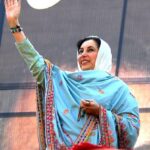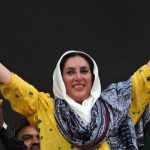Succumbing to immense international pressure, she (along with her family) was allowed to travel abroad in 1984 for medical aid. Following her recovery, she resumed her political pursuits, becoming a leader in exile for the PPP, and raising awareness of the state of political prisoners and human rights violations under the Zia regime.

